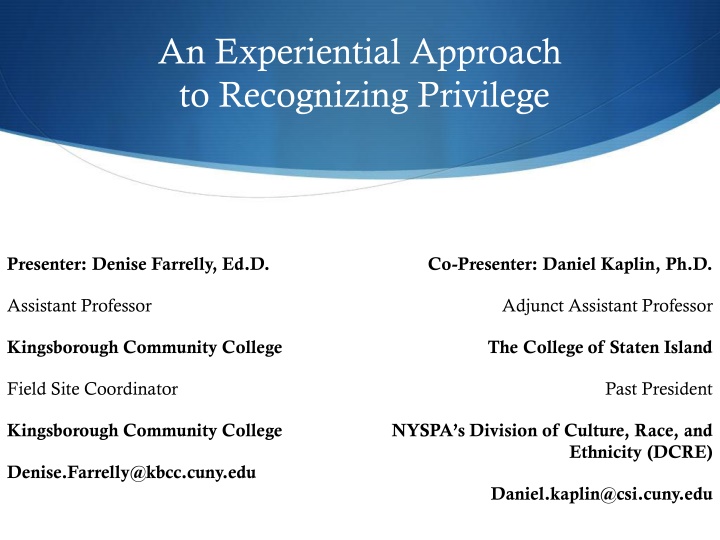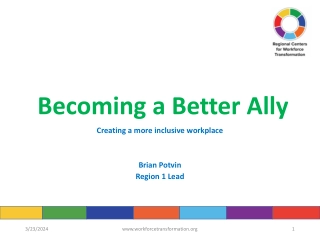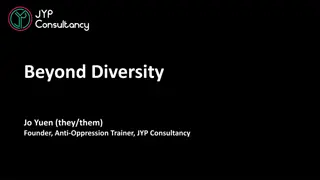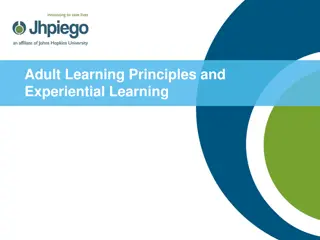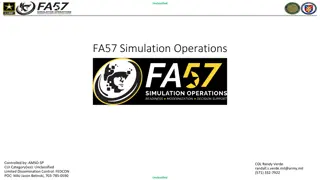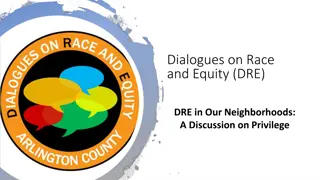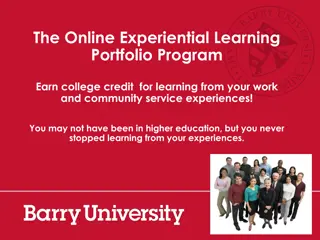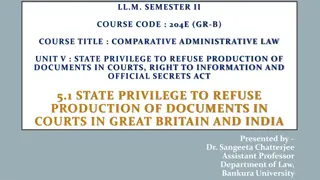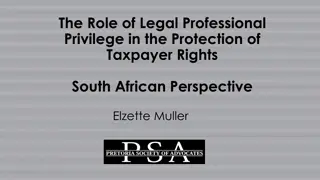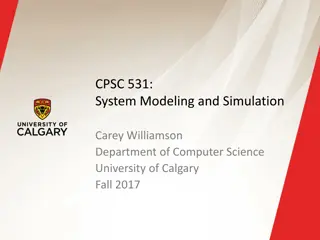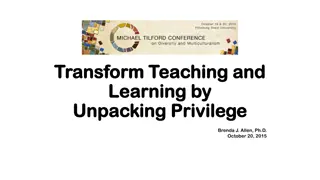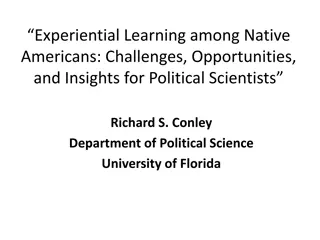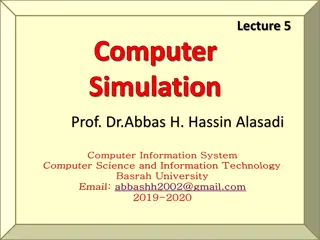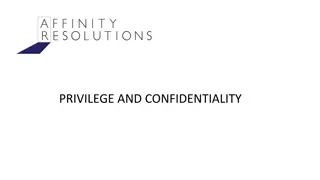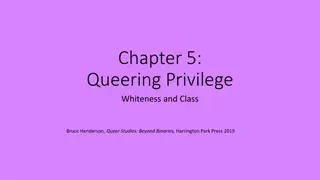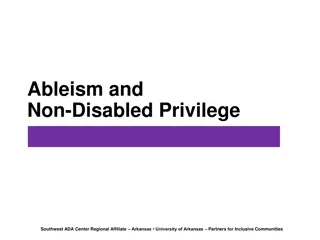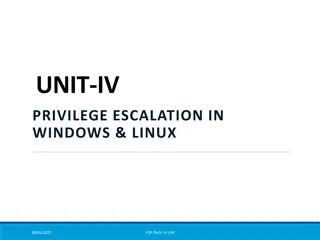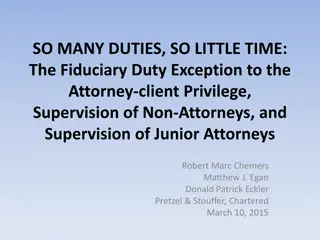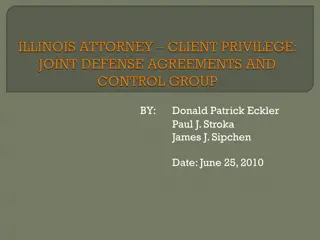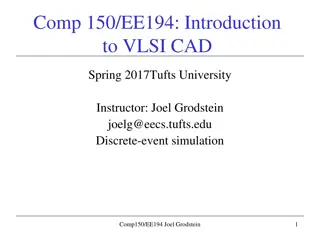Recognizing Privilege in Education: An Experiential Simulation
Explore the impact of privilege in education through a simulated activity that reveals unequal advantages based on materials provided. Engage in post-activity discussions to reflect on privilege dynamics and cultural influences. Gain insights into how privilege affects learning environments and student outcomes.
Download Presentation

Please find below an Image/Link to download the presentation.
The content on the website is provided AS IS for your information and personal use only. It may not be sold, licensed, or shared on other websites without obtaining consent from the author.If you encounter any issues during the download, it is possible that the publisher has removed the file from their server.
You are allowed to download the files provided on this website for personal or commercial use, subject to the condition that they are used lawfully. All files are the property of their respective owners.
The content on the website is provided AS IS for your information and personal use only. It may not be sold, licensed, or shared on other websites without obtaining consent from the author.
E N D
Presentation Transcript
An Experiential Approach to Recognizing Privilege Presenter: Denise Farrelly, Ed.D. Co-Presenter: Daniel Kaplin, Ph.D. Assistant Professor Adjunct Assistant Professor Kingsborough Community College The College of Staten Island Field Site Coordinator Past President Kingsborough Community College NYSPA s Division of Culture, Race, and Ethnicity (DCRE) Denise.Farrelly@kbcc.cuny.edu Daniel.kaplin@csi.cuny.edu
A Simulated Privilege Activity Sociocultural Contexts: Social Foundations of Education (Introductory course for Education majors) In this simulation, students are asked to work in groups to create a poster representing their cultures. However, they are blind to the true objective of the activity. The students are told that the creators of the most aesthetically-pleasing poster will receive an advantage on their next exam. Each group is provided with different sets of art materials to create their poster - intentionally creates an uneven playing field.
Outcomes of the Activity The students who received the best materials were generally unaware that they had an advantage. The students who received less/poorer materials were keenly aware of the inequity. Some students quietly protested but, being part of the minority group, were generally unheard by the dominant groups.
Post-Activity Discussion Questions How did it feel to be a member of the dominant/minority group in the activity? Might the disadvantaged students have achieved success in the task if they simply worked harder? Did the dominant group earn their advantage? Is it fair to blame the dominant group? Is it fair to capitalize on the minority group s disadvantage? How might have you approached the activity differently if you were made aware of the inequity at the start? Next lesson: Students participate in Hays (2013) Culture Sketch, in which they respond to questions pertaining to their own identity across the ten cultural influences.
Culture Culture is difficult to define Hays (1996, 2016): all of the learned behaviors, beliefs, norms, and values that are held by a group of people and passed on from older members to newer members, at least in part to preserve the group. Encompasses more than ethnicity any group develops a culture
Hays (2016) ADDRESSING Framework Cultural Influences Age & generational influences Socioeconomic status (SES) Sexual Orientation Developmental disabilities Indigenous heritage Disabilities Acquired later in life Religion & spiritual orientation National origin Gender Ethnic and racial identity
References Hays, P. A. (1996). Addressing the complexities of culture and gender in counseling. Journal of Counseling & Development, 74(4), 332 338. doi:10.1002/j. 6676.1996.tb01876.x 1556- Hays, P.A. (2013). Connecting Across Cultures: The Helper's Toolkit. Thousand Oaks, CA: SAGE, pp. 15-16. Hays, P. A. (2016). Addressing cultural complexities in practice: Assessment, diagnosis, and therapy (3rd edition). Washington, D.C.: American Psychological Association.
